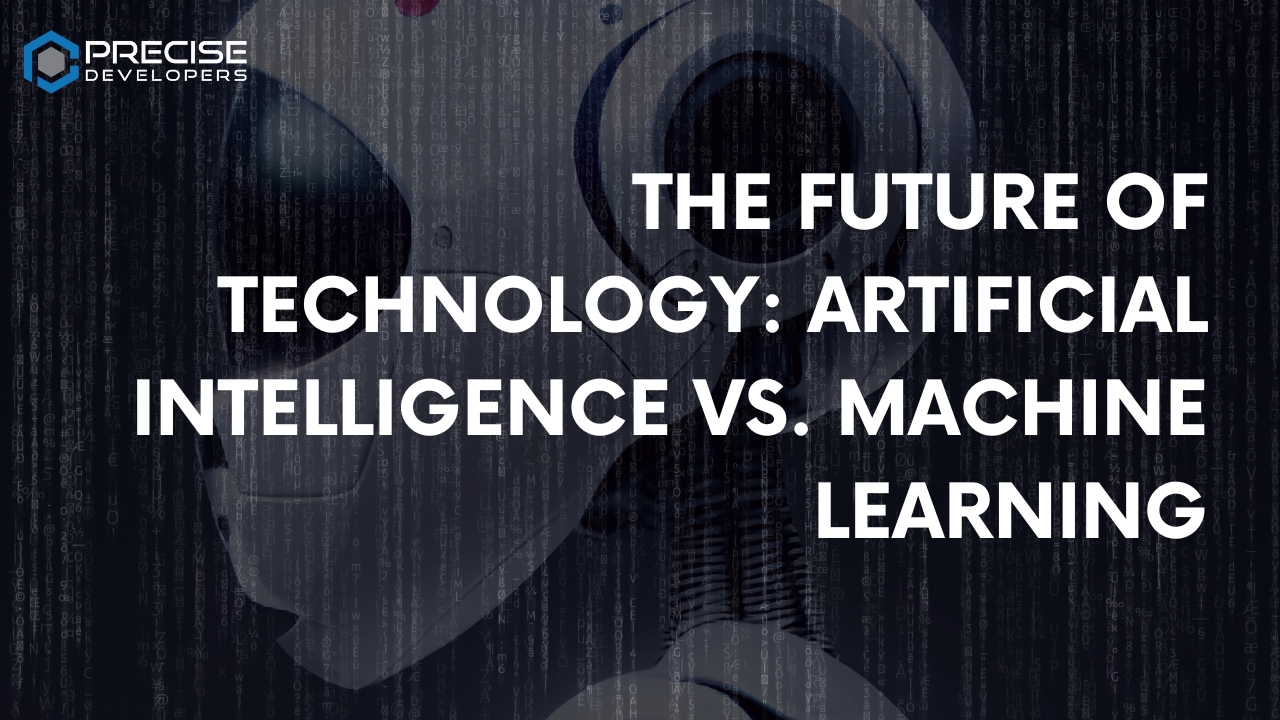The Future of Technology: Artificial Intelligence vs. Machine Learning
In today’s digital age, the terms Artificial Intelligence (AI) and Machine Learning (ML) are being thrown around quite frequently. They are often used interchangeably, but there are distinct differences between the two. In this blog, we will explore the key differences between AI and ML, their individual capabilities and limitations, and how they are shaping the future of technology. We’ll also take a closer look at the real-world applications of AI and ML and how they are impacting various industries. This blog is intended for anyone interested in learning more about the future of technology and the role AI and ML will play in it. Whether you’re a technology enthusiast, a business professional, or a student, this blog will provide valuable insights into the current state and future potential of AI and ML.
Machine learning and Artificial Intelligence (AI) are two closely related but distinct fields of study. Machine learning is a subset of AI that focuses on the development of algorithms and statistical models that enable computers to learn from data and make predictions or decisions without explicit programming. AI, on the other hand, is a broader field that encompasses machine learning, but also includes other areas such as natural language processing, computer vision, and robotics.
Examples of Machine learning:
- Image recognition involves training a model to identify objects within an image.
- Natural language processing involves training a model to understand and generate human language.
- Recommender systems, are used to predict what a user may want to buy or watch based on their past behavior.
Examples of Artificial Intelligence:
- Self-driving cars, use a combination of machine learning and computer vision to navigate the road and make decisions.
- Virtual personal assistants like Siri and Alexa use natural language processing and machine learning to understand and respond to user commands.
- Robotics, which involves using AI to control and program robots to perform a variety of tasks.
Pros of Machine learning:
- Machine learning algorithms can be trained on large amounts of data, making them well-suited for tasks such as image and speech recognition.
- Machine learning models can be fine-tuned to improve their performance over time.
- Machine learning can be used to automate repetitive tasks and make predictions, which can lead to increased efficiency and productivity.
Cons of Machine learning:
- Machine learning models can be prone to errors, especially when they are not trained on a diverse set of data.
- Machine learning models can be biased if the data used to train them is biased.
- Machine learning models can be difficult to interpret, which can make it difficult to understand how they are making decisions.
Pros of Artificial Intelligence:
- AI can be used to automate tasks that are too difficult or time-consuming for humans to perform.
- AI can be used to make predictions and decisions that are more accurate than human judgment.
- AI can be used to analyze large amounts of data and identify patterns that humans might miss.
Cons of Artificial Intelligence:
- AI can be expensive to develop and maintain.
- AI can be difficult to understand, which can make it difficult to identify and correct errors.
- AI can be used to automate tasks that are currently performed by humans, which could lead to job loss.
In conclusion, both machine learning and AI are powerful technologies that have the potential to revolutionize many industries. However, it is important to keep in mind that these technologies are not without their limitations. Machine learning is a subset of AI, which is focused on developing algorithms and models that enable computers to learn from data and make predictions or decisions. AI, on the other hand, is a broader field that encompasses machine learning but also includes other areas such as natural language processing, computer vision, and robotics. Both machine learning and AI have their own set of pros and cons, and it is important to carefully consider these when deciding which technology to use for a particular task.
You may also like to see: Revolutionize Your Linux Development and Achieve Proven Results with Docker
If you enjoyed reading this post, we encourage you to share it with your colleagues. Your feedback on our blogs and social media posts on platforms such as Instagram, Facebook, LinkedIn, and Twitter is greatly appreciated

